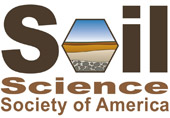Soil Based Ecosystem Services Following Land-Use Changes from Forestry to Agriculture; Future Research Opportunities in Newfoundland and Labrador.
See more from this Division: OralSoil Based Ecosystem Services Following Land-Use Changes from Forestry to Agriculture; Future Research Opportunities in Newfoundland and Labrador.
See more from this Session: Food, Energy and Water Security 1A
Friday, March 7, 2014: 10:35 AM
Grand Sheraton, Magnolia
Under proposed food self-sufficiency programs in Newfoundland and Labrador the land under agricultural use in the province must increase 3 to 5 times the current extent. Such increase in agricultural lands can only be obtained by expanding into lands currently under forestry use. Commonly such soils have low pH, superficial horizons, and low or readily mineralizable organic matter. It is expected that any such land–use change will induce rapid changes in the carbon storage and cycling patterns. Long-term maintenance of soil fertility and a high organic carbon content will be critically dependent on the establishment of management approaches that will maximize return of carbon to soils. These activities will clearly need to balance the ecosystem services offered by the current forest cover with the economic requirements imposed by expanding agricultural lands. Mitigation of any potential loss of ecosystem services, such as carbon sequestration, water quality, and biodiversity will require appropriate management options covering soil management and appropriate crop selection. Critically these activities will offer opportunities for novel research activities on the role of soil biology and fertility, subsurface hydrology and soil water interfaces, and soil-plant relationship.
See more from this Division: OralSee more from this Session: Food, Energy and Water Security 1A
